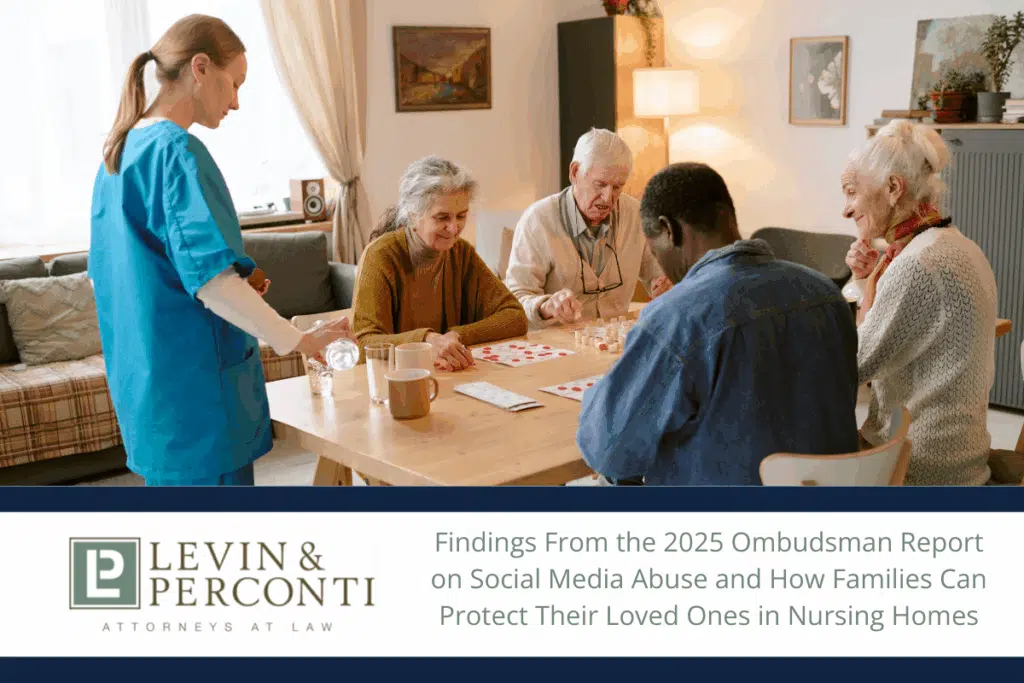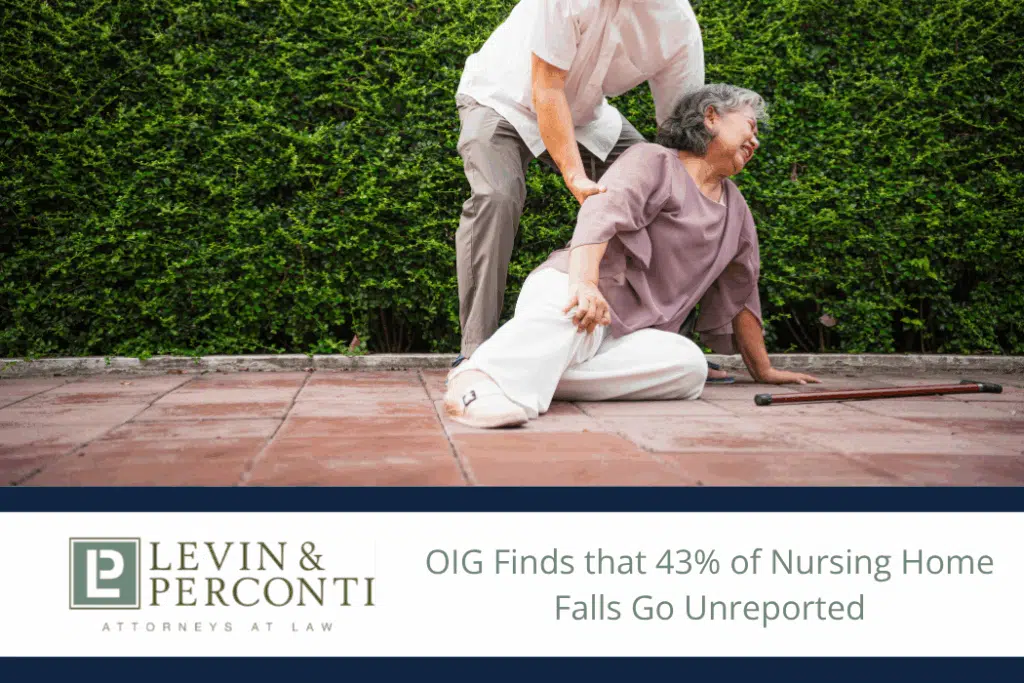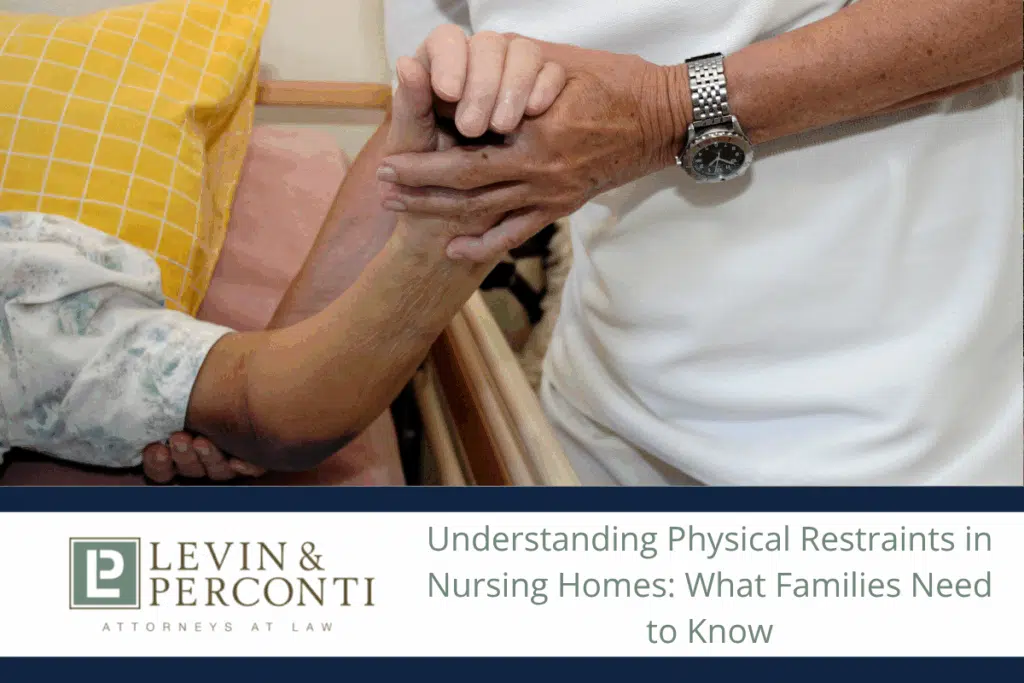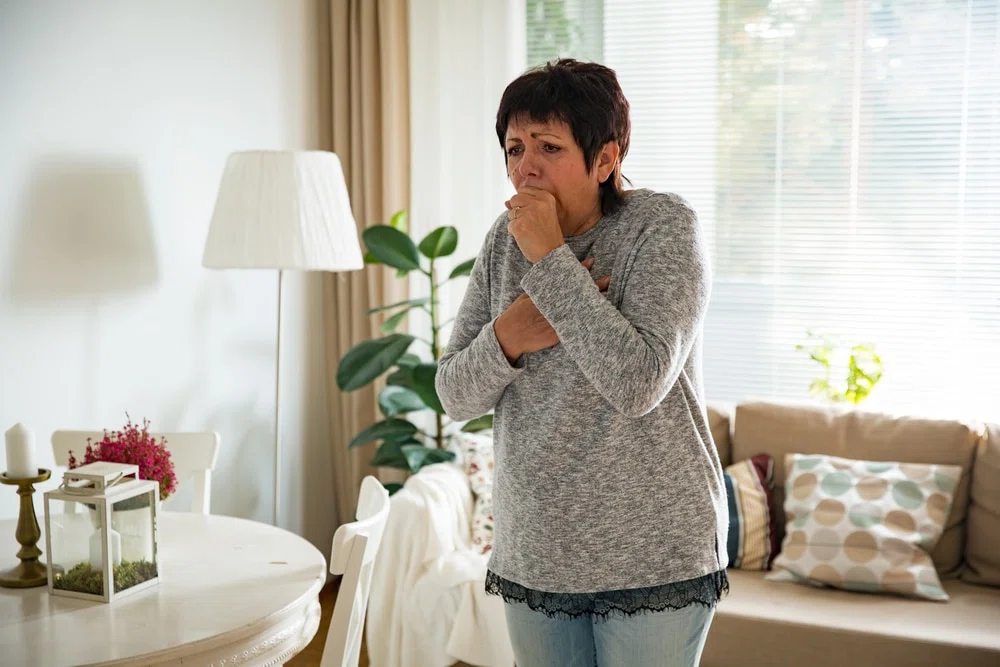Attorney for Abuse & Neglect at The Grove of La Grange Park

The purpose of nursing home care and assisted living is to provide a better quality of life for disabled or aging adults who cannot care for themselves. While this always includes providing the basic necessities of shelter, adequate sustenance, good hygiene, and medical care, nursing homes should also be doing their best to meet the social and personal needs of each resident.
Home | The Grove Nursing Homes Neglect Attorneys | Attorney for Abuse & Neglect at The Grove of La Grange Park
Recognizing Early Nursing Home Abuse
When nursing home residents are treated like robots with no personal preferences, their general well-being and, ultimately, their health can decline. It is up to nursing home facilities to record important preferences and try to accommodate them within reason.
For many residents, that means allowing them to wear their own clothes, choose when they want to be shaved or have nails trimmed, enjoy favorite snacks, smoke when they need to, and participate in favorite activities, among other things.
Nursing homes should also make an effort to provide appropriate social activities for residents to enjoy. There should be activities available for all levels of ability, and residents who require help with mobility or engagement should receive such help from staff. Remaining social as long as possible for even the frailest residents can improve their general health, so it is important that their care plans include accommodations for helping them socialize with other residents and participate in activities as much as possible and as they desire.
Unfortunately, sometimes even professional caregivers forget the importance of socializing and honoring personal preferences and let these needs fall to the wayside in favor of more urgent or basic needs. When they are more worried about getting many residents fed, bathed, or medicated, it is easy for staff to become negligent about the smaller details like requests for a picky resident’s alternative meal or remembering to take a wheelchair-bound resident to an activity. They may even become frustrated by repeated reminders and requests and respond rudely or dismissively. This can result in residents not receiving the things they need as staff fail to provide it or a resident gives up making requests.
Usually the underlying issue here is understaffing or poor training. It is easier to meet all of the needs of every resident when a nursing home takes measures to employ enough caregivers and train them properly.
When a facility fails to do this, they risk creating negligent and even abusive situations where important needs go unmet far too long or stressed out staff begin taking out their frustrations on vulnerable residents. It is always the facility’s responsibility to protect residents from harm and give them the most comfortable existence possible, but far too many facilities today fail to do this.
Selecting a Safe Nursing Home
If you or a loved one expect to enter assisted living in the future, it is vital that you understand how to protect yourself from abusive or negligent staff. Forgoing necessities in order to stay on a cranky caregiver’s good side should not be an option. Nursing homes are paid to reasonably provide everything a resident needs to live comfortably. Therefore, it is important that you look for a nursing home that will do this for you and not make you feel bad about it.
Choosing a safe nursing home can seem daunting. Luckily there are some resources you can rely on to help you make a confident decision. After working with victims of nursing home abuse for over 20 years, Levin & Perconti has observed that nursing homes that are highly rated by Medicare are less likely to foster environments where abuse and neglect occur.
Conversely, low rated nursing homes are more likely to have performance and staffing problems that do promote abuse. Therefore, we encourage you to research the ratings and other information available for the nursing homes in your area before picking one.
You can find Medicare’s ratings and other information on medicare.org. We suggest comparing the ratings and information found on health inspection reports there for all nursing homes you are considering. The ratings are a quick way to filter out poor performers. The health inspection reports can tell you how severe of citations a facility has received. Both are simple indicators of what facilities are least likely to have incidents of abuse and which are more likely to.
If you are not familiar with the assisted living communities in your area, you can learn about your best options by asking for recommendations from people you know such as friends, family, doctors, and social workers. Government programs meant to assist the elderly often have information to share, as well as your local long-term care ombudsman and even the state licensing agency. A quick Google search is helpful too. All can give you the names of facilities to look into when you begin your research.
Looking up prospective facilities online isn’t enough, however. Medicare can help you weed out the least desirable facilities and narrow down your search, but when faced with picking from your top few options, nothing beats a personal assessment.
Schedule tours of the most promising nursing homes so you can see what they’re like in person. You can learn a lot about a place just by seeing it with your own eyes. You can see how well maintained the facility is, how friendly the staff are, and how content the residents are. You can see what the rooms and food and common areas are like.
You can also ask questions. Bring a list of questions about things you’re most interested in. The tour may answer some of them, but if you are concerned about the safety of residents, you might consider asking about staff qualifications, staff to resident ratios, and if there is a procedure for reporting grievances. A good nursing home has a high staff to resident ratio and a large proportion of those staff should be trained nurses. Every nursing home should also have a communicated grievance procedure.
Of course, there will be other considerations in choosing the right nursing home, but these tips should help you find one where you have the best chance of avoiding abuse and neglect. Levin & Perconti have seen too many heartbroken families dealing with the aftermath of nursing home abuse, and we want to help as many others as possible avoid such a tragedy. That’s why we are happy to offer these tips as well as share information from medicare.org for Illinois nursing homes so you have one more resource to refer to during your efforts to find the perfect nursing home.
About The Grove of La Grange Park
701 N La Grange Rd.
La Grange Park, IL 60526
The Grove of La Grange Park is a post-hospital rehabilitation facility with 131 Medicare-certified beds and a variety of health care services including cardiac care, pulmonary care, oncology care, and post-surgical rehabilitation services.
Medicare gives The Grove of La Grange Park an Average overall rating. This rating comes from mixed ratings in the three categories Medicare grades nursing homes on: an Above Average quality measures rating, Below Average staffing rating, and Average health inspection rating.
For more details about the quality of care provided at The Grove of La Grange Park, you can read the latest health inspection reports from the last few years. Below is a sample of citations from the latest report.
- 7/20/2018 Failure to develop a complete care plan within 7 days of the comprehensive assessment; and prepared, reviewed, and revised by a team of health professionals. The facility failed to revise care plans to include interventions based on assessments of two residents. One resident uses two half side bed rails due to severe cognitive impairment and extensive assistance for bed mobility, but their care plan did not include notes on their risk for entrapment. A second resident was observed sitting on the floor after falling from bed and required a trip to the hospital. The resident has a habit of sitting on the edge of their bed and playing with the bed control, causing them to fall. Their care plan did not address this behavior.
- 7/20/2018 Failure to provide appropriate care for residents who are continent or incontinent of bowel/bladder, appropriate catheter care, and appropriate care to prevent urinary tract infections. The facility failed to provide appropriate catheter care for two residents. A CNA was observed assisting a resident with getting dressed. The CNA failed to secure the resident’s catheter tubing to the resident’s leg and placed the catheter bag on the floor. Once the resident was dressed and transferred to a wheelchair, the CNA slid the catheter bag across the floor and hung it from the wheelchair. A second resident’s catheter tubing was observed as not secured to the resident’s leg and hanging freely from the insertion site with the tubing laying on the floor. A nurse asked a CNA to take care of the hanging equipment, who then washed and dried the catheter and then performed perineal care to the resident without using hand hygiene.
- 7/20/2018 Failure to provide activities to meet all residents’ needs. The facility failed to provide meaningful activities for one resident. The resident has limited activity involvement due to disorientation and decreased awareness and is on a one to one program with help from staff to provide sensory stimulation programs. The resident was observed alone in their room or unengaged in the activity area over the course of two days. The only assistance to engage in activities came from their visiting spouse.
Legally Reviewed by

Read Bio
Since 1976, Steve Levin has been dedicated to helping people injured by others’ negligence. He is one of the first attorneys in the U.S. to prosecute nursing homes for abuse and negligence. He’s also helped write new legislation that governs the operation of nursing homes, including the Illinois Nursing Home Care Act. Moreover, Levin & Perconti has obtained the top three jury verdicts in nursing home negligence cases in Illinois.
Notable Results
for failure to properly read pap smears, resulting in the misdiagnosis of cervical cancer and eventual death of a 35-year-old mother of three children.
for failing to biopsy a known breast tumor, resulting in the delay of diagnosis of breast cancer, causing death.
for failing to perform an annual pelvic exam, which resulted in the untimely diagnosis of ovarian cancer.
Levin & Perconti Is Here to Help
No one deserves the pain and trauma of nursing home abuse. If you or a loved one have come to harm due to abuse or neglect at The Grove of La Grange Park or another Illinois nursing home, Levin & Perconti can help. We handle all kinds of cases of nursing home abuse, including but not limited to those involving:
- Unauthorized Physical and/or Chemical Restraint Use
- Physical Abuse
- Alzheimer’s and Dementia Patients
- Falls, Improper Transfers, Drops by Staff
- Medication Errors
- Wandering and Elopement from facilities
- Pressure Sores
- Clogged Breathing Tubes
- Sepsis and Other Infections
- Burns
- Malnutrition and/or Dehydration
- Physical or Sexual Assault or Abuse
We’ve recovered over $1 billion in compensation so far, and we want to win a fair verdict or settlement for you, too. Contact us online or call us any time for a free consultation with one of our nursing home abuse attorneys.
Disclaimer: The above health inspection findings are taken from public records kept and published by Medicare and the state of Illinois and are not complete. Levin & Perconti cannot confirm that this page’s content includes the latest information available. Any corrections or additions made to these public records after publication of this page will not be found here. For the most up-to-date information, visit www.il.gov or medicare.gov.
This page is a legal advertisement and informational resource for visitors and is not endorsed by the named facility or any government agency. Levin & Perconti does not have any affiliation with the named facility.

Related Blogs














